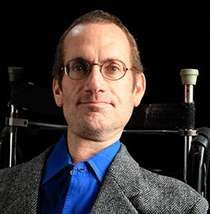By Ben Mattlin
Not long ago, I was hired to do a sensitivity reading of a book manuscript, a guide for young adults about how people live with disabilities. I was born with spinal muscular atrophy (SMA), a congenital neuromuscular disorder, and I did my best to make a few gentle suggestions to ensure the text didn’t offend. For instance: “Delete ‘wheelchair-bound’ — substitute ‘wheelchair-user’ or equivalent.”
But then I came upon a word that gave me pause.
The author, who has SMA too, had dubbed our shared situation a “disease.” There is “no cure for my disease,” he wrote. And, “My disease has had an enormous impact on my life, but I try not to let it define me.” Good and stirring sentiments, to be sure, and not wrong, exactly. But still . . . this wasn’t a medical tome. I didn’t feel the word “disease” belonged. In fact, I realized it offended me.
Why? Isn’t SMA, by definition, a disease? Because of it, he and I and countless others were born with a genetic deficiency that affects the chromosome enabling motor-neuron impulses to travel back and forth to the brain. As a result, muscles atrophy. If the author sees fit to name this a disease — which no doubt many readers and physicians would agree with — who was I to carp?
Politely, I advised substituting “disability.”
Tomato, tomahto? Perhaps. Yet the words are not interchangeable. Disability is the more inclusive choice. A disability can result from illness, injury, accident, genetics and more. That broad base gives it power. If “my disease” refers to a specific condition within my body, “my disability” connects me with a diverse array of other people, a common cause.
“Disability identifies the group to which I belong and with which I share characteristics,” an advocate posted on social media. “Disease caused it in me, but it’s no longer active in my life. Disability is.”
Then again, a particular diagnosis often captures people’s attention, creates fundraising pull. People donate money for muscular dystrophy or Alzheimer’s or Parkinson’s research, not so much for the vague notion of disability rights. “Disease” equals bucks.
Of course, that’s part of the problem. The word conjures tragedy and elicits pity. Maybe it shouldn’t. “I don’t think the word ‘disease’ needs to have a negative connotation,” posted a second online pundit. “Living with a disease is not necessarily a bad thing.”
Indeed, plenty of people need medical assistance as much as equal access to education and employment. They shouldn’t be ignored or denigrated for that. To them, the mantle of “disease” drives home the point that they seek and deserve clinical intervention. Here’s to Disease Pride!
To my ears, though, “disease” will always be troubling. I’m okay with “disorder,” “impairment” and other neutral, science-y sounding terms. I’m not a stickler for politically correct language either. Call me a “disabled man” (#SayTheWord) or a “man with a disability” (#PersonFirstLanguage) — I honestly don’t care which. Growing up, I was called handicapped, and that’s still fine with me in most contexts (especially because it doesn’t come from a begging reference, contrary to popular belief, but from an advantage that’s forfeited to make a game fair). I was also taught that “cripple” is a dirty word, yet many of us have reclaimed it with pride.
But “disease” harks back to an outmoded and repressive standard, when we were no longer shunned and feared as monsters and freaks but, alas, studied as biological oddities, as puzzles to solve. Granted, many folks were helped by this approach, as others were harmed. Not until the 1960s and ’70s, however, did we progress to the modern paradigm of empowerment. No longer just “patients,” we demanded full control over our own lives.
This revolutionary movement culminated in 1990 with the Americans with Disabilities Act. That landmark legislation codified “disability” into law. In so doing, it enshrined the word as a unifying badge of honor.
Today, when I say “disability,” it’s a way of embracing that cause.
Moreover, I’ve simply never felt diseased. It doesn’t fit how I view myself or my limitations. Disability, for me, has always felt natural, an inborn trait as much as my blue eyes and curly brown (okay, graying) hair. That’s fundamentally different from a disease, which is an invader, something separate from your essential personhood, an alien presence to get rid of. SMA, on the other hand, is in my DNA. It’s part of what makes me me.
Reprinted from the “Washington Post”

Ben Mattlin
Our special contributor Ben Mattlin, was born with spinal muscular atrophy (SMA), a congenital muscle weakness that causes paralysis and related health issues. A highly regarded writer, Ben’s work has appeared in “The New York Times,” “The Washington Post” and “USA Today.” He lives in Los Angeles with his wife and children.
Leave a Reply